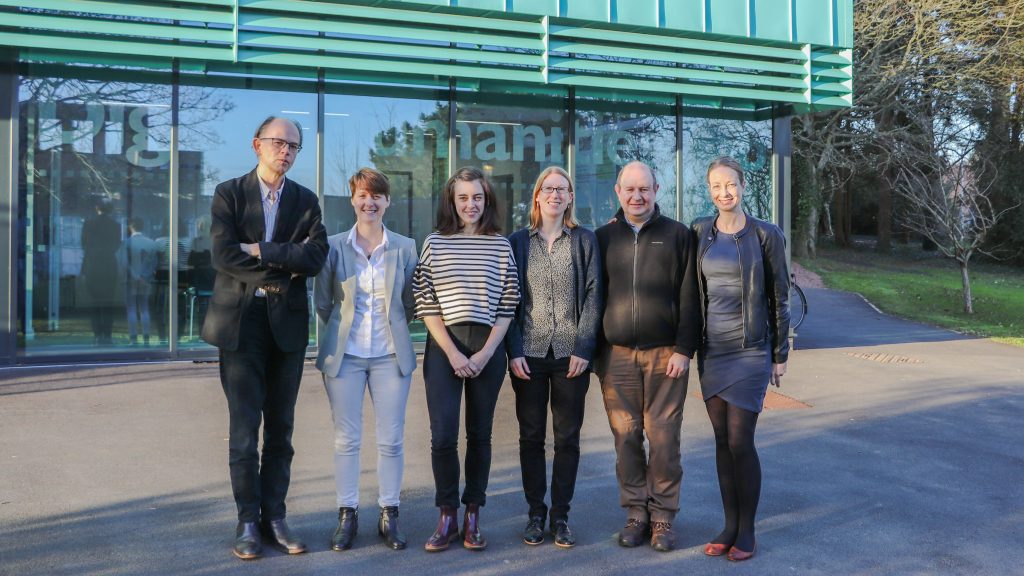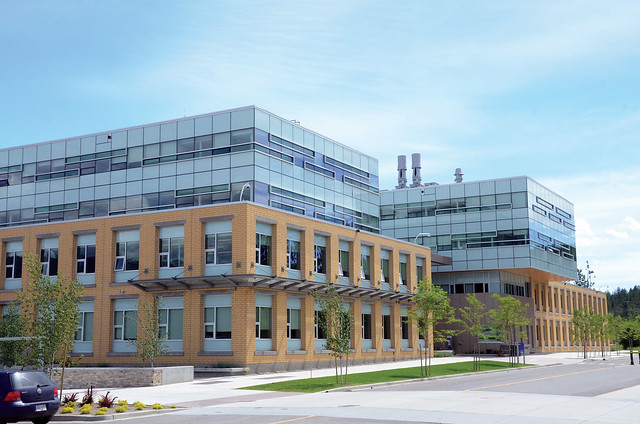On this page:
| New Indigenous language degree underway | New programs receive approval | First dual-campus engineering program to launch this fall |
| Non-degree initiatives underway | Programs receive accreditation |
New indigenous language degree underway
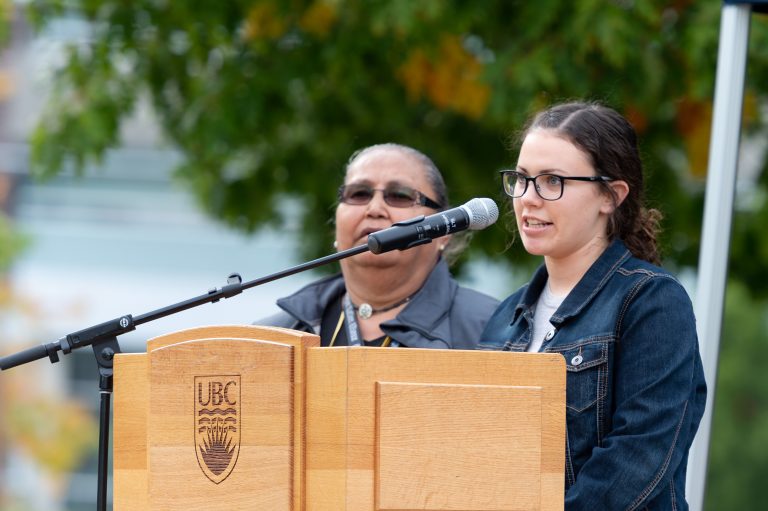
Student Kara Ross saying the opening prayer at the Okanagan Nation Alliance flag raising.
A new Indigenous Language Proficiency/Fluency Degree Framework for the Province was recently completed and the creation of a UBC Okanagan Bachelor of Indigenous Language degree is underway. This degree will be undertaken in partnership with several other institutions, including the En’owkin Centre, Nicola Valley Institute of Technology, and UBC Vancouver. The degree links into a program commencing at the En’owkin Centre in September 2019, with the first cohort entering UBC Okanagan in 2021. It will focus on language immersion to facilitate the development of high levels of fluency in Nsyilxcn (the language of the Syilx people), creating new opportunities that focus on language learning and communication.
New programs receive approval
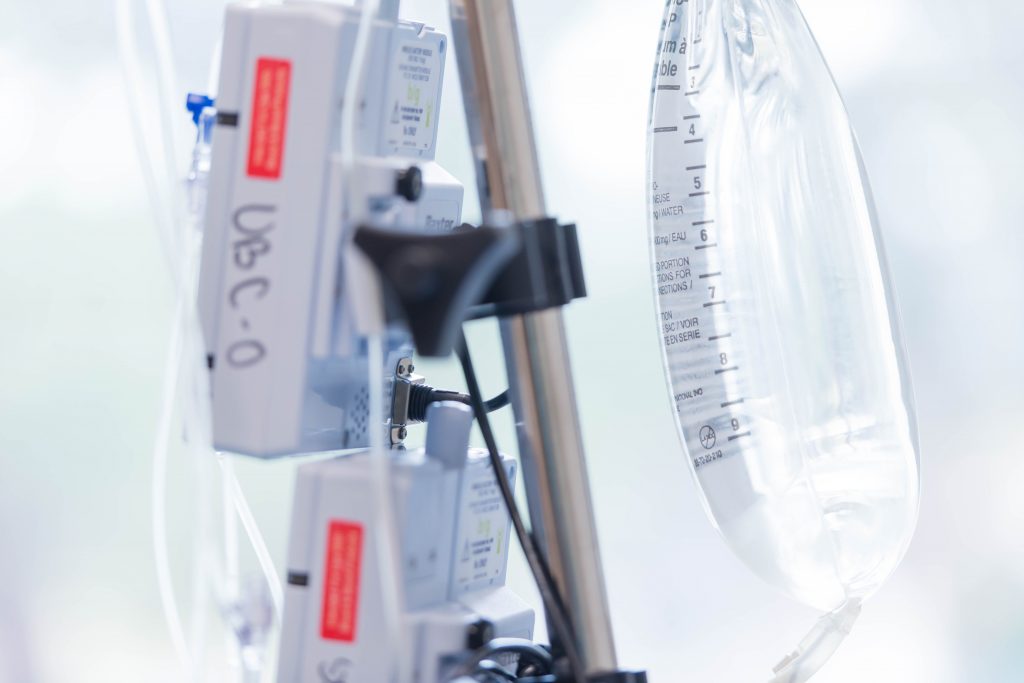
Two new PhD programs were approved by the Board of Governors in June: a PhD in Nursing, which will prepare outstanding nurses for leadership roles in academic institutions, practice settings, and policy arenas, and a PhD in Computer Science, with diverse research opportunities—from artificial intelligence, to data analytics and software engineering.
First dual-campus engineering program to launch this fall
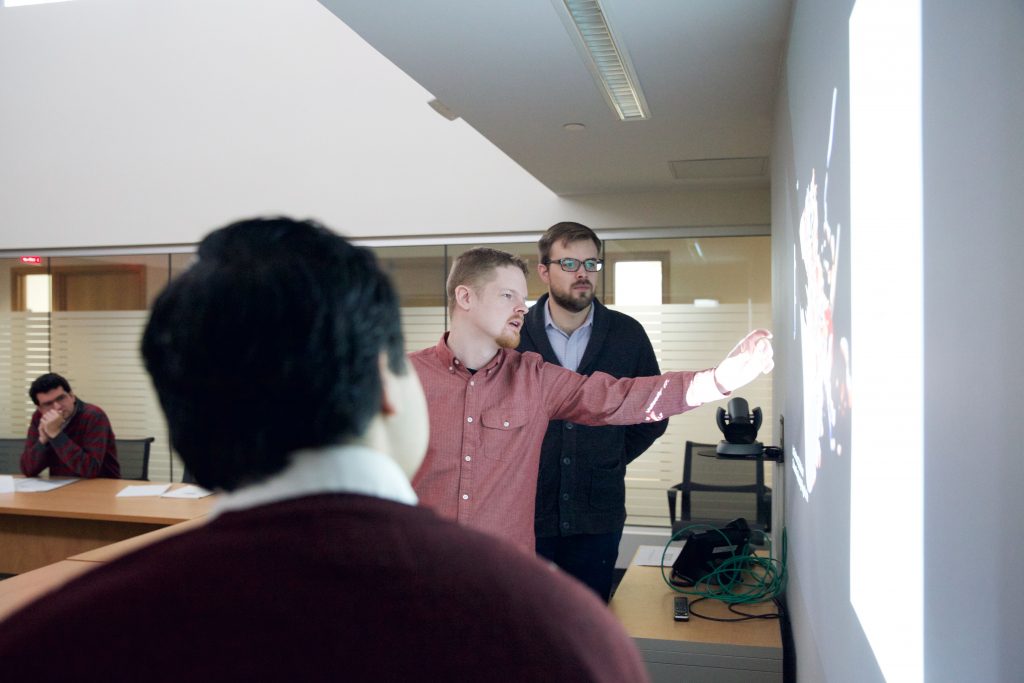
Technology-assisted teaching and learning in the School of Engineering.
The Faculty of Applied Science is launching its first dual-campus program this fall—a new undergraduate program in manufacturing engineering. The Okanagan campus will focus on production management, while the Vancouver campus will concentrate on production technology, with a goal of solidifying UBC’s role as a centre for digital, automated and advanced manufacturing, as well as create more opportunities for collaboration between the two campuses.
Non-degree initiatives underway
Some exciting new non-degree initiatives are under development that will offer flexible, extended learning opportunities focused on skills acquisition, knowledge enhancement, career progression, and professional development.
Credit-based programs, such as pathway programs to degrees, cross-disciplinary programs, and hybrid undergraduate and graduate programs are being explored. Non-credit based programs are also being examined, such as summer programs for high school students, continuing education for professionals, and pathway programs that link to credit earning programs.
In partnership with Extended Learning on the Vancouver campus, UBC Okanagan will pilot a non-credit, short-term, summer program for high school students in 2020. The program, which will be offered in partnership between faculties and administrative units, will increase summer use of campus and offer opportunities for community engagement and exposure of programs to new audiences.
Programs receive accreditation
Accreditation is an essential part of many of the programs that we offer—it is our opportunity to open our doors and show the high standard to which our programs are held. Four programs recently passed their accreditation:
- The Mechanical, Civil, and Electrical Engineering programs were accredited for a 5 year period by Engineers Canada
- The Bachelor of Science in Nursing (BSN) program was successfully accredited by the College of Registered Nurses of British Columbia
